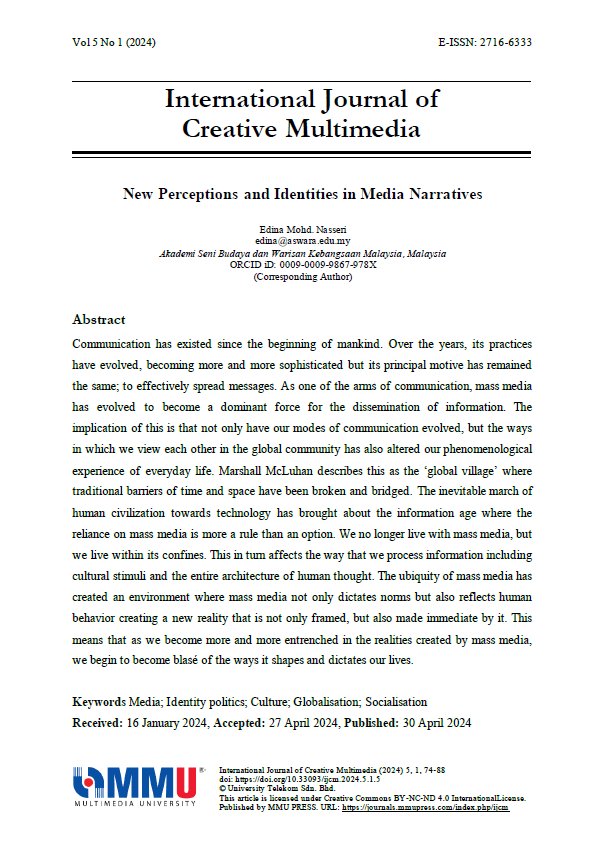New Perceptions and Identities in Media Narratives
Main Article Content
Abstract
Communication has existed since the beginning of mankind. Over the years, its practices have evolved, becoming more and more sophisticated but its principal motive has remained the same; to effectively spread messages. As one of the arms of communication, mass media has evolved to become a dominant force for the dissemination of information. The implication of this is that not only have our modes of communication evolved, but the ways in which we view each other in the global community has also altered our phenomenological experience of everyday life. Marshall McLuhan describes this as the ‘global village’ where traditional barriers of time and space have been broken and bridged. The inevitable march of human civilization towards technology has brought about the information age where the reliance on mass media is more a rule than an option. We no longer live with mass media, but we live within its confines. This in turn affects the way that we process information including cultural stimuli and the entire architecture of human thought. The ubiquity of mass media has created an environment where mass media not only dictates norms but also reflects human behavior creating a new reality that is not only framed, but also made immediate by it. This means that as we become more and more entrenched in the realities created by mass media, we begin to become blasé of the ways it shapes and dictates our lives.
Article Details

This work is licensed under a Creative Commons Attribution-NonCommercial-NoDerivatives 4.0 International License.

